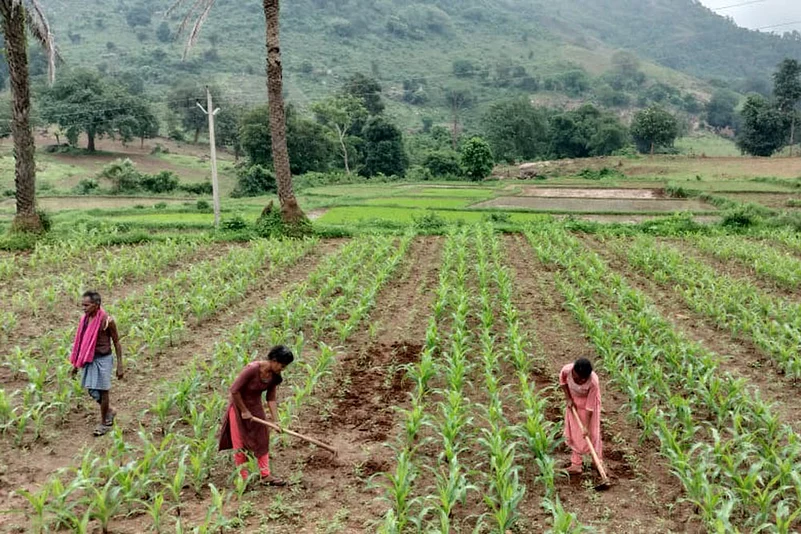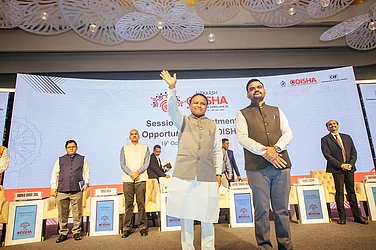Odisha is redefining its agricultural landscape through a well-thought out blend of financial assistance, technological integration, sustainable practices, and market-oriented reforms.
Under the leadership of Chief Minister Mohan Charan Majhi, the state is moving beyond traditional subsidy-led models to lay the groundwork for a more resilient and future-ready rural economy.
From Input Support to Income Security
At the heart of this agrarian transformation is the expanded CM-KISAN Yojana, the cornerstone of Odisha’s direct-aid system. In April 2025 alone, over ₹1,025 crore was disbursed to more than 51 lakh small, marginal, and landless farmers, ensuring critical seasonal input support of ₹4,000 per household through Direct Benefit Transfers (DBT). The move ensures transparency as well as reduces dependency on intermediaries.
The scheme’s inclusion of a ₹12,500 one-time livelihood assistance for landless households demonstrates its wider objective: economic inclusion in agriculture.
Also, the Krushi Vidya Nidhi Yojana (KVNY) is grooming the next generation of agri-professionals, providing scholarships to the children of CM-KISAN beneficiaries.

Technology, Climate and the Future of Farming
Data-led systems and climate-integrated planning are redefining Odisha’s agriculture.
The state’s Krushi Samiksha Kendra and Agri Extension apps provide advisories through AI-enabled platforms, while the Digital Advisory Service, e-Pest Surveillance, and Krushak Samruddhi Helpline offer immediate support.
A unique feature of Odisha’s agrarian strategy is India’s first Climate Resilience Cell, which ensures that all agriculture policy is developed through a climate lens.
The system also integrates nutrition and gender sensitivity as part of broader sustainability efforts.
The state’s Command-and-Control Centre now allows real-time tracking of grievances and service delivery, setting a precedent for efficiency in rural administration.

Beyond Paddy: A Push Towards Diversification and Global Reach
Moving beyond Minimum Support Price (MSP)-driven procurement, the Samrudha Krushak Yojana buys paddy at ₹3,100 per quintal, a premium of ₹800 above MSP, benefiting more than 16 lakh farmers.
Similarly, the internationally lauded Shree Anna Abhiyan (Odisha Millet Mission) expands to 177 blocks in FY 2025-26 and offers a ₹210 MSP premium for ragi, while building 4,308 value-addition units across the state.
The Mukhyamantri Maka Mission successfully connected maize producers with 58 buyers, generating trade worth ₹49.54 crore. Moreover, the Indigenous Aromatic Paddy Export Scheme has enabled exports to the UAE, UK, Cyprus and Mauritius, placing Odisha’s unique grain varieties on the global map.
Community Strength and the Business of Farming
Collective rural enterprise lies at the core of Odisha’s agri-policy. Over the past year, 150 new Farmer Producer Organisations (FPOs) were supported and 78 MoUs signed with private agri-firms. Odisha’s FPOs exported 50 MT of produce to overseas markets.
Meanwhile, the Mukhyamantri Krushi Udyog Yojana (MKUY) mobilised ₹264 crore in FY 2025-26, and previous grants ensured private investment worth over ₹1,400 crore.
The state government is also planning 58 cold storage units across all sub-divisions, with 82 firms committing investment under the Cold Storage Scheme (2025–30). Tractor sales reached new highs, with Odisha leading the country in uptake due to targeted subsidies.
A significant policy breakthrough also redefined disaster relief. Unseasonal rain damage of over 33%, which was previously not classified as a natural disaster, is now eligible for compensation under the State Disaster Relief Fund (SDRF). This ensures immediate aid to affected farmers, providing a safety net in an era of climatic volatility.
A Resilient, Inclusive Agrarian Future
Under Chief Minister Mohan Charan Majhi, Odisha’s agricultural strategy offers a replicable model of reform-led governance. It is not merely reacting to rural challenges but also reengineering the system through inclusive markets, climate-resilient institutions, and tech-empowered farmers.
The result is a more secure, productive and dignified life for Odisha’s farming communities, aligned with the state’s larger ambition of equitable and sustainable economic growth.


























